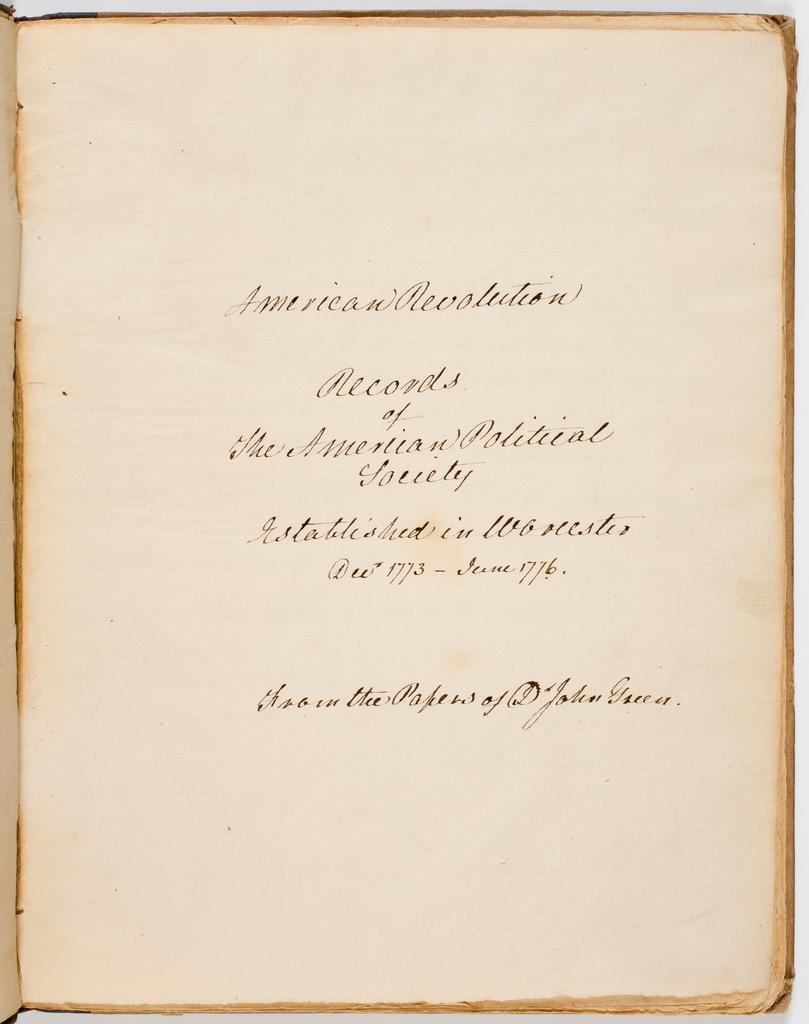Worcester’s American Political Society – a Revolutionary political club
On January 3, 1774, in the aftermath of the Boston Tea Party, thirty-one men from Worcester, solid members of their community but not the wealthy and well-connected, founded the American Political Society (APS), a radical caucus that met in advance of town meetings to plot strategies, determine agendas, and put forward candidates for public office. While the Committee of Correspondence, as a public body, reported back to the town as a whole, the APS, avowedly partisan from the outset, could do and act as it pleased. Within a year, membership in the organization would grow to 71, almost one-third of the enfranchised citizens of the town. Since these men could be counted upon to show up at every town meeting, effectively insuring a majority, the APS became in effect a shadow government.
The minutes of the APS, at the American Antiquarian Society, reveal interesting aspects of local political activism in 1774. Of particular interest are the minutes for these dates:
January 3: the rules
April 14: supporting the grand jurors in their refusal to sit for the meeting of the Superior Court; preparing the “instructions” for the town’s representative, officially the job of the town meeting
July 4: all members to be supplied with arms and powder
August 1 (the day the Massachusetts Government Act took effect): committee at next meeting on “something that they shall think proper for the Town to act upon” at the forthcoming town meeting on August 22. Might this have been where the “ink” scheme was hatched? (See “Ink Page” document.)
August 18: choose moderator for the official town meeting; distribute gunpowder; inventory town ammunitions; oblige all citizens to be armed; no more liquor.
September 5 (the day before the dramatic court closure): “Voted. Not to bring our Fire-arms into Town the 6 Day of Sept instant.” Word had come that General Gage would send not troops to protect the court.
October 3: accept (“except”) the instructions to Timothy Bigelow, representative to the Provincial Congress. These instructions required Bigelow to push for a new government based on the will of the people (see “Worcester’s declaration for independence” document). Formally, these would not take effect until approved by the town meeting the following day.
Note that after all British authority had been terminated, the APS met less often, had less of an impact, and eventually disbanded.
